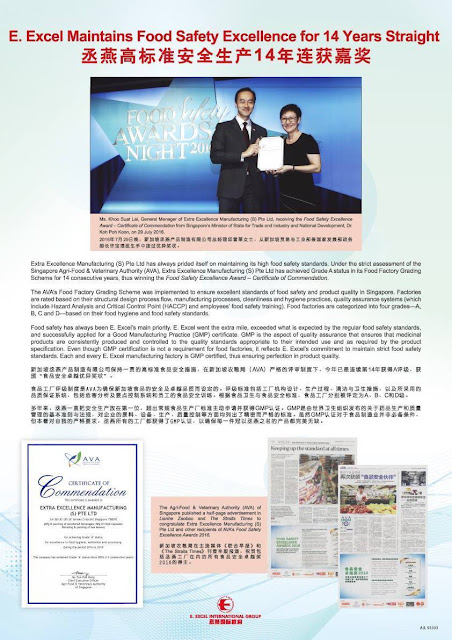Cactus
is amazingly strong plant that can survive in the harsh desert. The Mexican people
view it as a beautiful symbol of life and hope, and they use it widely for food
and medicine. Cactus is also highly regarded in traditional Chinese medicine
(TCM). Written during the Qing Dynasty, Beng Cao Gang Mu Shi Yi (A Supplement
to the Compendium of materia Medica) recorded that cactus has a mild taste and
is cold in nature, can promote the flow of qi (vital energy) and blood
circulation, is cooling and detoxifying, can reduce swelling and relieve pain, strengthens the spleen and
stops diarrhea, is soothing and a diuretic, and can be used both externally and
internally to treat many diseases. Moreover, it is low in calories and sodium. The
excellent nutritional value of cactus is recognized across different cultures around
the world.
Excellent
Nutritional Value
Cactus
extract is rich in nutrients such as beta-carotene, vitamin C, potassium,
magnesium, calcium, and iron. It is also abundant in phytochemicals,
antioxidants, and polysaccharides.
Cactus
has high levels of amino acids, including proline and taurine. Prior to 2000,
when taurine was found to be in cactus, it had not been discovered in any other
plants! Cactus also contains essential amino acids not manufactured by the
human body such as histidine, isoleucine, etc.
Potent
Antioxidant and Toxicity Reducer
Research
indicates that the high levels of nutrients and antioxidants in cactus and
cactus fruit can help prevent DNA damage, and effectively inhibit and fight
against free radical formation. For example, cactus is abundant in flavonoids,
a group of phytochemicals that can help protect neurons against oxidative
injury. Beta-carotene contributes to the high antioxidant activity in cactus.
The antioxidant activity of cactus fruit is said to be seven times more
powerful than that of vitamin C!
Cactus
extract reduces oxidative damage and liver and kidney toxicity that occur as a
result of zearalenone, a toxin that occurs in high levels in many foodstuffs
such as crops and vegetable oils. In one study, supplementing with 500g of
cactus fruit daily for two weeks improved the oxidative stress status of
healthy humans.
Cancer
Fighter
Phytochemicals
in cactus protect the plant from UV damage and ensure its survival. These same
phytochemicals are also highly beneficial to the human body because they help
inhibit different tumor formation processes and nourish the immune system to
prevent disease. Antioxidants in cactus can inhibit the formation of free
radicals and enhance phagocytic activity. Polysaccharides can boost immunity,
increase NK cell activity, and inhibit tumor formation.
Cardiovascular
Health Benefits
Found
in cactus, proline and taurine, are of particular interest. Proline aids in
collagen formation, atherosclerosis prevention, and tissue repair. Taurine
helps to combat heart disease, protect against diabetes, lowering high blood
pressure, and decrease anxiety.
Furthermore,
cactus extract helps to decrease cholesterol and triglyceride levels, reduce
low-density lipoprotein (“bad” cholesterol), prevent high blood sugar levels, stabilize
diabetic’ blood sugar levels, and promote cardiovascular health.
Inflammation
Inhibitor
Cactus
contains beta-sitosterol, an anti-inflammatory phytochemical that aids in wound
healing. Scientists tested a topical application that consisted of 15% cactus
extract and found that phytochemicals in cactus accelerated tissue regeneration
by inhibiting inflammation, stimulating the creation of new blood vessels, and
stimulating fibroblasts (cells that aid in would healing) to move to the wound
area and speed up collagen formation.
Skin
Improvement
Research
shows that when applied to skin, cactus extract acts as a moisturizer and helps
prevent water evaporation from the stratum corneum layer, thereby improving the
skin’s barrier function. In addition, phytochemicals in cactus help to speed up
collagen formation.
Cactus
fruit is high in vitamins A, B1, B12, D3, and riboflavin. The fruit can help to
promote skin repair and regeneration, soften the skin, and significantly
improve the skin’s condition and appearance.



























